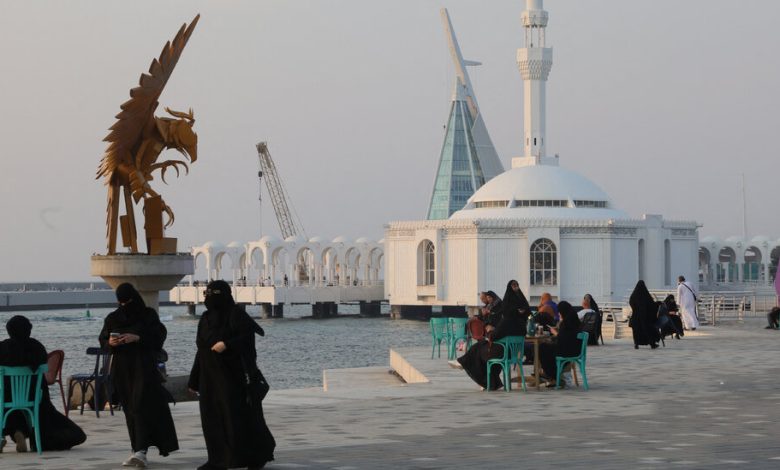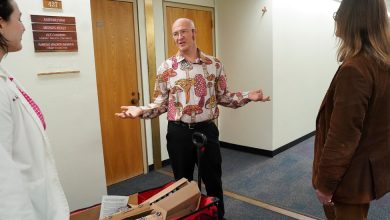Saudis Overwhelmingly Oppose Ties With Israel, Poll Finds

A new poll has found that 96 percent of Saudis believe that Arab countries should cut all ties with Israel to protest the war in Gaza, posing a significant challenge to the Biden administration’s push for Saudi Arabia to establish diplomatic relations with Israel.
According to the poll, 40 percent of Saudis expressed positive attitudes toward Hamas, compared with 10 percent in a poll several months before the war began. Only 16 percent of Saudis surveyed in the poll said that Hamas should stop calling for the destruction of Israel to accept the creation of Palestinian and Israeli states side by side — the “two-state solution” to the conflict that the Saudi government publicly supports.
The poll, by the Washington Institute for Near East Policy, a generally pro-Israel research organization, surveyed 1,000 Saudis from Nov. 14 to Dec. 6.
While Saudi Arabia has grown more autocratic over the past eight years, analysts say that the country’s de facto leader, Crown Prince Mohammed bin Salman, must still take public opinion into account as he weighs decisions.
Before the war — when the American-brokered efforts to reach a Saudi-Israel “normalization” deal appeared to be gaining pace — American political analysts, U.S. officials and some Saudi officials had asserted that younger Saudis tended to care less about the Palestinian cause than previous generations and might therefore be more amenable to the idea of ties with Israel.
It is unclear to what extent that was true, given the lack of regular, reliable polling in Saudi Arabia — and considering the climate of fear created by deepening levels of political repression under Prince Mohammed. Since the war in Gaza began, vocal support for the Palestinian cause and antipathy toward Israel has been widespread among Saudis of all ages.
The positive views of Hamas that the poll found, while still a minority, are notable given that Saudi citizens can face prosecution for sympathizing with the Palestinian armed group, which launched the Oct. 7 attacks on Israel.
In September, shortly before the war began, Prince Mohammed said in a television interview that the talks between Saudi and American officials were getting “closer every day” to a deal in which Saudi Arabia would recognize the state of Israel for the first time.
Saudi officials had been pushing for major concessions from the United States — including access to American nuclear technology and American security guarantees — in exchange for normalizing ties with Israel, balancing a trade-off between potential public opposition to the deal and the political gains it could bring.
The Washington Institute poll found that 95 percent of Saudis did not believe that Hamas killed civilians in its attacks, which left around 1,200 people dead in southern Israel, most of them civilians — including many women and children — according to Israeli officials. It is relatively common for Arabs to believe that reports of civilian deaths are Israeli propaganda.
In contrast, the focus for most Saudis and other Arabs has been the Israeli military’s siege of Gaza, including a bombing campaign that is one of the most intense this century and that has killed around 20,000 Palestinians, according to the health authorities in Gaza.
In the poll, 87 percent of Saudis said that the war had shown “that Israel is so weak and internally divided that it can be defeated some day.”
Just 5 percent agreed that Saudis should “show more respect to the world’s Jews, and improve our relations with them.”
The poll did find, however, that a majority of Saudis supported a political solution to the Israeli-Palestinian conflict over a military approach. Three-quarters said that they supported the idea of an Arab diplomatic effort to make peace between the two sides.



